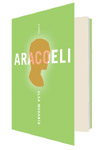In the Italian novelist Elsa Morante’s final work, Aracoeli, the narrator, Manuel, attempts to locate his mother buried amid the ruins of both memory and post–World War II history. In the vein of W. G. Sebald’s Austerlitz, Morante’s forty-three-year-old narrator is a solitary traveler who sets out to explore his origins through visiting his motherland. In the majority of the novel, Manuel goes back to the past, resurrecting his childhood. He ponders the mystery of his mother, the Aracoeli of the title, an Andalusian peasant who becomes the mistress and, later, wife of an Italian naval officer. The story Manuel narrates in such extraordinary language is ultimately a tragedy, when Aracoeli goes mad with grief at the death of Manuel’s baby sister and is overcome by sexual urges (possibly due to disease), even resorting to prostitution. At her death, Manuel is left orphaned with his cruel paternal grandparents, like a fairy tale, and obsessed for life with his mother (both Madonna and Magdalene to him), elevating her to the status of myth.
Morante, who died in 1985, one year after the English publication of Aracoeli, moved in cosmopolitan Roman circles—she was wife of the novelist Alberto Moravia and close friend of filmmaker Pier Paolo Pasolini. When Pasolini panned in print Morante’s lengthy La Storia, her only work at the time that dealt explicitly with the repercussions of World War II in Italy, Morante disowned him. (A year later he was murdered on the beach.) One can see Pasolini’s influence in Aracoeli: the oedipal struggle, the treatment of sex and violence. In this period of grief and alienation, Morante wrote her last work, now thankfully reissued by Open Letter in William Weaver’s excellent translation (along with a recent biography, constituting a Morante resurgence). At its publication Aracoeli was criticized as too grim and cynical, although containing the same elements of Freudian family romance found in Morante’s popular fantasy Arturo’s Island. But Aracoeli certainly deserves to be recognized as a great work of existentialist literature, alongside Rainer Maria Rilke’s The Notebooks of Malte Laurids Brigge. Aracoeli can also be compared to the solitary horror of Beckett’s novels and the existential anti-bourgeois dread of Thomas Bernhard. Anyway, is it really the role of the author to be uplifting, or instead to speak a particular truth, of an individual...
You have reached your article limit
Sign up for a digital subscription and continue reading all new issues, plus our entire archives, for just $1.50/month.
Already a subscriber? Sign in





